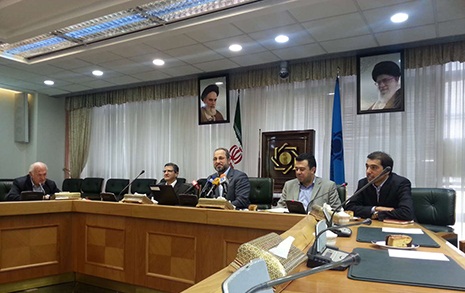Iran and P5+1 reached a nuclear agreement on July 14, which will pave the way for lifting sanctions on Iran, including those imposed on banking system. It`s expected the sanctions would be eliminated after ratifying the agreement in the Iran parliament and the U.S. Congress, as well as after verification of the International Atomic Energy Agency.
Tehranfar said that there are also legal problems that need to be addressed to eliminate the concerns of Financial Action Task Force (FATF) on money laundering and terrorism financing.
FATF is an intergovernmental organization founded in 1989 to develop policies to combat money laundering. Iran has been blacklisted by FATF.
A report released by the organization June 26, states that FATF remains particularly and exceptionally concerned about Iran’s failure to address the risk of terrorist financing and the serious threat this poses to the integrity of the international financial system, despite Iran’s recent engagement with FATF.
FATF has reaffirmed its call on members and urges all jurisdictions to advise their financial institutions to give special attention to business relationships and transactions with Iran, including Iranian companies and financial institutions.
In addition to enhanced scrutiny, the FATF reaffirms its February 25, 2009 call on its members and urges all jurisdictions to apply effective counter-measures to protect their financial sectors from money laundering and financing of terrorism risks emanating from Iran.
Tehranifar said Iran has prepared a bill, submitted to the Parliament to pave the way for ratifying a law on money laundering and terrorism financing to meet the FATF`s standards.
He said Parliament has approved the bill, but the Guardian Council should carry out some emendations and then the parliament will ratify that.
More about:
















































